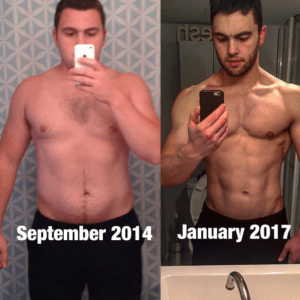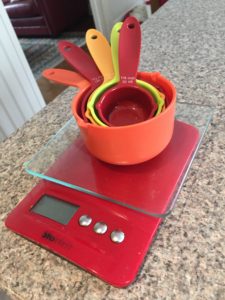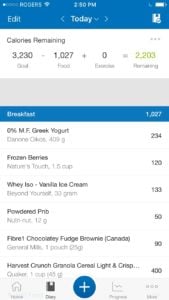
You can’t lose weight by simply “sticking to a diet”. I know this because I have failed numerous times with losing fat while following fat loss diets. How does that make any sense?
Paleo, Ketogenic, Intermittent Fasting: I’ve experimented with them all, and regardless of how strict I was with adhering to them, I would fail. The reason for this isn’t because these diets don’t work. The reason was that I was eating too much.
Weight loss only occurs when you’re in a caloric deficit (when you’re burning more calories in a day than you consume). Cutting out certain foods, or restricting food intake to certain times of the day won’t magically make you lose weight; what it will do is manipulate the amount of calories that you consume in a day. For example, junk food is high in calories. If you’re on a diet that preaches cutting out all junk food, then it’s likely that your overall calorie consumption will be lessened, especially if you were already eating a lot of junk food to begin with.
So, when a diet “doesn’t work” for someone, it isn’t because that diet is flawed. It’s because the person doesn’t know how many calories they should be consuming to stimulate fat loss. It wasn’t until I started paying attention to the actual amount of calories I was eating that I started to see progress towards my fat loss goals.
In order for you to figure out your daily calorie requirements, and improve your diet, I always suggest tracking your food intake. This takes the guessing out of dieting, improves accuracy, and puts you in control.
Now I know what you’re thinking, but tracking your food is not much work at all, especially once you get the hang of it. It becomes second nature. But in order to get the hang of it, you need to give it a try.
The One-Week Tracking Challenge:
I challenge you to track your entire food intake for one week. If after that week you decide you hate tracking and never want to do it again, fine. At least you’ll have an idea of how much you’re currently eating, and how you can adjust your diet to meet your specific goals.
You’ll need 3 tools:
1 – A digital food scale, and measuring cups.
2 – A calorie counting app (I recommend myfitnesspal) to download to your phone, tablet, or computer.
3 – A digital bodyweight scale.
3 Steps to Improving Your Diet:
1 – When you wake up, before you eat or drink anything, and after you use the bathroom, weigh yourself. Take note of this weight.
2 – From there, go about your day the way you normally would: eat and drink the foods and beverages you’d typically consume. The only change you’ll be making is that each food and beverage will be measured, and then tracked in your calorie counting app before you consume it.
Myfitnesspal lets you scan barcodes of food products to find the exact nutritional information, as well as search foods in their database. If you’re out to eat somewhere where you don’t know the nutritional information, find a food on the myfitnesspal database that seems close enough to the food you’re eating and log it. Estimating is better than blindly eating.
3 – Repeat steps 1 and 2 every day for one week.
At the end of the week:
Add up the amount of calories you consumed each day and divide that number by 7 to figure out the average daily amount.
Next, calculate the average of your daily morning weigh-ins.
Finally, compare your average bodyweight with the bodyweight you noted on the first day. If you lost weight, you know you’re on the right track. If you maintained or gained weight, you’ll have to decrease your calories to ensure weight loss.
From here, you can continue tracking with a daily calorie goal, and each week you can make adjustments if needed until you reach your fat loss goal.
Here’s an example of what a week of tracking would look like for Joe Blow:
M – Weight: 180, Calories: 3412
T – Weight: 180, Calories: 3030
W – Weight: 181.6, Calories: 3047
T – Weight: 181.2, Calories: 3135
F – Weight: 182, Calories: 3014
S – Weight: 180.7, Calories: 3203
S – Weight: 181, Calories: 3100
Average weight: 180.9
Average calories: 3134
In this example, Joe gained almost 1lbs by eating 3134 calories/day on average. Joe now knows that he should be eating less than 3134 calories/day to lose weight. He can adjust accordingly.
Simple.
This article is not meant to bash on any of the diets I’ve mentioned above. They can work well for some people, and I’d usually recommend them as a starting point. But at the end of the day, your overall caloric consumption is what will make or break you when you’re dieting.
So give it shot! Track everything for a week, and let me know what you find.
Add me as a friend on myfitnesspal (Username: mikeauch).




